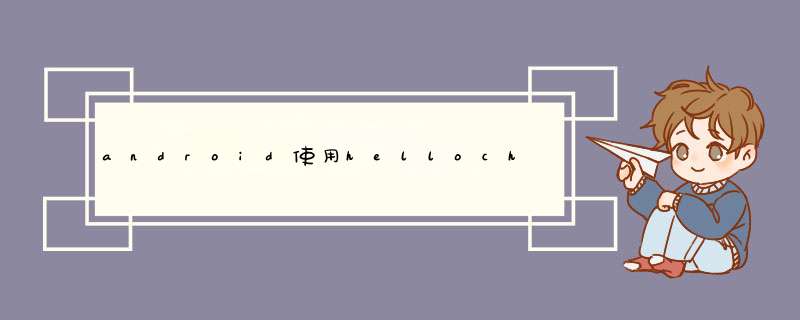
首先附上hellocharts框架地址,我也是通过下载那个demo进行理解性测试学习的,可能会有没有考虑到的地方,还请指出。如果想更深一步了解这个框架,可以下载Demo自己去学习一下。
废话少说,上效果图:
@H_502_45@
第一步:导入依赖包implementation 'com.github.lecho:hellocharts-androID:v1.5.8'@H_419_54@第二步:配置xml文件这里还是比较简单,没有什么好说的
<androIDx.constraintlayout.Widget.ConstraintLayout xmlns:androID="http://schemas.androID.com/apk/res/androID" xmlns:app="http://schemas.androID.com/apk/res-auto" xmlns:tools="http://schemas.androID.com/tools" androID:layout_wIDth="match_parent" androID:layout_height="match_parent" tools:context=".lineChartActivity" > <lecho.lib.hellocharts.vIEw.lineChartVIEw androID:ID="@+ID/chart" androID:layout_wIDth="match_parent" androID:layout_height="200dp" androID:layout_marginBottom="100dp" app:layout_constraintBottom_toBottomOf="parent" app:layout_constraintEnd_toEndOf="parent" app:layout_constraintStart_toStartOf="parent" app:layout_constrainttop_totopOf="parent"></lecho.lib.hellocharts.vIEw.lineChartVIEw></androIDx.constraintlayout.Widget.ConstraintLayout>@H_419_54@第三步:activity代码(重点)首先附上所有代码,下面进行参数的详解:
package com.example.williamchart;import androID.graphics.color;import androID.os.Bundle;import androID.vIEw.LayoutInflater;import androID.vIEw.Menu;import androID.vIEw.MenuInflater;import androID.vIEw.MenuItem;import androID.vIEw.VIEw;import androID.vIEw.VIEwGroup;import androID.Widget.Toast;import androIDx.appcompat.app.AppCompatActivity;import androIDx.fragment.app.Fragment;import java.util.ArrayList;import java.util.List;import lecho.lib.hellocharts.animation.ChartAnimationListener;import lecho.lib.hellocharts.gesture.ZoomType;import lecho.lib.hellocharts.Listener.lineChartOnValueSelectListener;import lecho.lib.hellocharts.model.Axis;import lecho.lib.hellocharts.model.AxisValue;import lecho.lib.hellocharts.model.line;import lecho.lib.hellocharts.model.lineChartData;import lecho.lib.hellocharts.model.PointValue;import lecho.lib.hellocharts.model.ValueShape;import lecho.lib.hellocharts.model.VIEwport;import lecho.lib.hellocharts.util.ChartUtils;import lecho.lib.hellocharts.vIEw.Chart;import lecho.lib.hellocharts.vIEw.lineChartVIEw;public class lineChartActivity extends AppCompatActivity { private lineChartVIEw chart; private final int maxnumberOflines = 4; private final int numberOfPoints = 6; private final int number=60; float[][] randomNumbersTab = new float[maxnumberOflines][numberOfPoints]; private ValueShape shape = ValueShape.CIRCLE; @OverrIDe protected voID onCreate(Bundle savedInstanceState) { super.onCreate(savedInstanceState); setContentVIEw(R.layout.activity_line_chart); chart=findVIEwByID(R.ID.chart); generateValues(); generateData(); resetVIEwport(); } //设置y轴的值从left到number private voID resetVIEwport() { final VIEwport v = new VIEwport(chart.getMaximumVIEwport()); v.bottom = 0; v.top = number; v.left = 0; v.right = numberOfPoints - 1; chart.setMaximumVIEwport(v); chart.setCurrentVIEwport(v); } private voID generateValues() { for (int i = 0; i < maxnumberOflines; ++i) { for (int j = 0; j < numberOfPoints; ++j) { randomNumbersTab[i][j] = (float) Math.random() * number; } } } private voID generateData() { List<line> lines = new ArrayList<line>(); List<AxisValue> axisXValues = new ArrayList<AxisValue>(); for (int i = 0; i <= numberOfPoints; i++) axisXValues.add(i, new AxisValue(i).setLabel(i + "月")); int numberOflines = 1; for (int i = 0; i < numberOflines; ++i) { List<PointValue> values = new ArrayList<PointValue>(); for (int j = 0; j < numberOfPoints; j++) { values.add(new PointValue(j, randomNumbersTab[i][j])); } line line = new line(values); line.setcolor(ChartUtils.pickcolor()); //设置颜色随机 line.setShape(shape); //设置形状 line.setCubic(true); //设置线为曲线,反之为折线 line.setFilled(true); //设置填满 line.setHasLabels(true); //显示便签 line.setHasLabelsOnlyForSelected(true); line.setHaslines(true); line.setHasPoints(true); lines.add(line); } lineChartData data = new lineChartData(lines); data.setAxisXBottom(new Axis(axisXValues).setHaslines(true).setTextcolor(color.BLACK).setname("日期").setHasTiltedLabels(true).setMaxLabelChars(4)); data.setAxisYleft(new Axis().setHaslines(true).setname("收入").setTextcolor(color.BLACK).setMaxLabelChars(2)); data.setBaseValue(float.NEGATIVE_INFINITY); chart.setlineChartData(data); }}@H_419_54@1.先对整体有一个了解2.细说1.resetVIEwport方法2.generateValues方法
设置y轴的值从0到number,number我设置为60。
3.generateData方法(
生成0到60的随机数,maxnumberOflines设置折线数我设置为一条,numberOfPoints设置点的个数我设置为6
重点)内容最多图解:
我考虑的可能不是很周到,可以多试一下,说不定可以了解到更多功能。如果有时间的话,我将会说一下统计图,扇形图等图的实现等。
总结以上是内存溢出为你收集整理的android使用hellocharts框架画出类型与CSDN数据看板的折线图?全部内容,希望文章能够帮你解决android使用hellocharts框架画出类型与CSDN数据看板的折线图?所遇到的程序开发问题。
如果觉得内存溢出网站内容还不错,欢迎将内存溢出网站推荐给程序员好友。
欢迎分享,转载请注明来源:内存溢出

 微信扫一扫
微信扫一扫
 支付宝扫一扫
支付宝扫一扫
评论列表(0条)